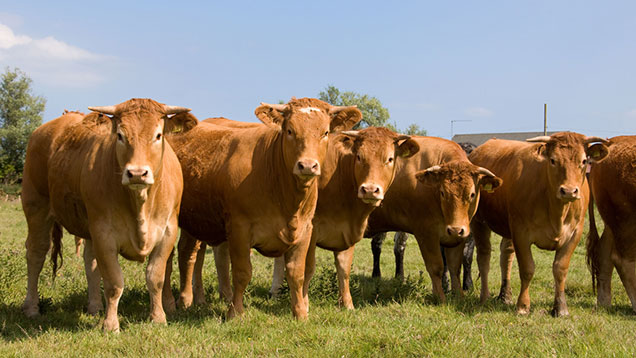Award-winning farmer fined for cattle record-keeping failures
 Library photo © Tim Scrivener
Library photo © Tim Scrivener An award-winning beef farmer has been fined £8,000 for a string of cattle record-keeping offences.
Gordon Kemp, 38, admitted four cattle identification and record keeping charges at his family farm at Waterside, Bridge of Alford, Aberdeenshire.
An investigation by Aberdeenshire Council’s animal health and welfare unit found Mr Kemp had failed to inform the authorities of the deaths of 94 cattle over a 10-year-period.
See also: Cattle passport change to help reduce errors
The father-of-two appeared at Aberdeen Sheriff Court on Wednesday (16 September) where he was sentenced for offences under Cattle Identification (Scotland) Regulations 2007.
The court heard that earlier this year Mr Kemp had failed to complete and keep an accurate register of his cattle, the Press and Journal reported.
Between 14 and 18 January, he admitted using an ear tag on one animal that had already been used on another.
On 18 February at Highland Meats, Saltcoats, Ayrshire, he used an identification document for an animal other than the cow it had been used for.
In addition, on 6 February he failed to keep an accurate record and inform the government of the deaths of 94 cattle on his farm over 10 years.
In mitigation, the court heard that Mr Kemp works 80 hours a week and finds it hard to keep up with the red tape. In addition, his lawyer said there were genuine mix-ups in his paperwork.
Mr Kemp, of J Gordon and Co, won the McIntosh Donald/Tesco Best Scotch Steak competition at the Royal Highland Show in July.
Scottish rural affairs secretary Richard Lochhead presented Mr Kemp with his trophy and a cheque for £1,000 after he scooped the award for a sirloin steak from a 370.8kg Limousin-cross steer.
It was only the second time he had entered the competition at the Ingliston show.
Speaking outside the case, a spokesman for Aberdeenshire County Council, said: “Aberdeenshire inspectors work hard to enforce these regulations to ensure full traceability of meat products from farm to slaughterhouse and the integrity of the human food chain.
“Cattle identification is also essential to control the spread of animal disease in the event of a disease outbreak. The farming and red meat industry forms a large proportion of the local economy and legislative compliance is vital to that.”
